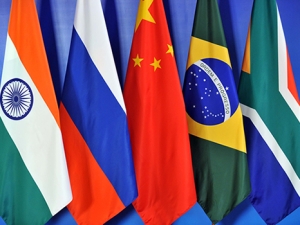Russia’s Evolving International Image
Russia’s public diplomacy in the past month has been under an increased level of pressure. This pressure resulted from Vladimir Putin’s return to office, which caused both negative perceptions outside the country and a rotation of the elites inside the country which led to changes among the public diplomacy leadership. Most of the news coming from Russia in May 2012 had to do with domestic decisions and their international consequences. The main headlines included Putin returning to the presidency, Dmitry Medvedev becoming Prime Minister, Putin’s refusal to participate in the G8 summit in Camp David and Obama’s refusal in turn to take part in the APEC 2012 Summit in Vladivostok. The formation of the new government with two-thirds of the cabinet made up of new ministers completed the news flow pattern from Russia in May 2012.
Putin’s inauguration on May 7 was broadcast live by six Russian TV channels including Russia Today, which also aired images of peaceful street protests taking place that day. Vladimir Putin had been elected President in early March, but it was not until his inauguration in May that he indicated to Barack Obama that he was not attending a G8 summit at Camp David. The decision came only a few days before the May 18-19 summit, surprising the organizers, media, and political analysts. It was especially astonishing given that the summit was initially scheduled to take place in Chicago along with the NATO summit, and only ended up at Obama’s residence to make it easier for the Russian President to arrive. National leaders have not often chosen to miss G8 summits before, and Putin’s decision was hardly expected. The U.S. President reacted swiftly by indicating that he would not attend the September Asia Pacific Economic Cooperation summit in Russia’s Vladivostok. Putin announced that Russia would host this summit back in 2007. White House Spokesperson Jay Carney denied any connection between the two events, and referred to the U.S. election campaign as the reason for pulling out of the Summit.
Vladimir Putin’s inauguration, May 7, 2012.
© www.kremlin.ru, 2012.
Among several explanations for Putin’s decision (including the official one that the President is busy forming the new government), the one that seems the likeliest is that he wants Medvedev to deal with “the West” while leaving the close neighbors to himself. Putin’s move to reaffirm his strong interests in neighboring countries combined with making his first presidential visit to Belarus did not go unnoticed. Belarussian President Alexander Lukashenko immediately reacted by publicly supporting Putin’s foreign and domestic policies and suggesting the development of new directions of bilateral economic and political cooperation. The new government under Medvedev’s appointment became the last important change in the country as two-thirds of the cabinet members have been replaced. The government still remains dominated by Putin.
Russia was very active in the global media space in the last month as it was going through important internal political changes. Both international media and Russian public diplomacy channels have been trying to predict these changes for the last half decade. As the dust settles from the political transitions in the country and Putin is able to turn from internal to external politics, it will be interesting to follow the evolving role of Russian public diplomacy and international broadcasting.
Tags
Issue Contents
Most Read CPD Blogs
-
March 22
-
February 23
-
February 22
-
March 4
-
April 1
Visit CPD's Online Library
Explore CPD's vast online database featuring the latest books, articles, speeches and information on international organizations dedicated to public diplomacy.









Add comment